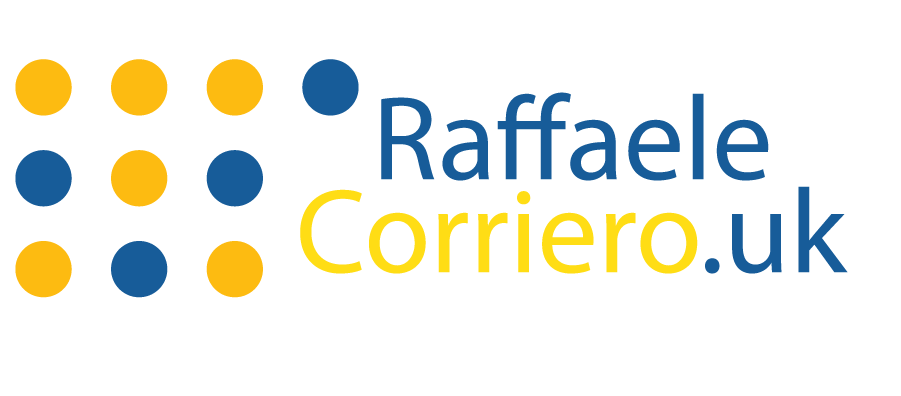We’ve been helping businesses like yours stand out for over 20 years
Search Engine Optimization (SEO) and WordPress services are crucial for enhancing a website’s visibility and performance. SEO involves optimizing website content and structure to rank higher in search engine results, driving organic traffic. WordPress, a popular content management system, offers numerous plugins and themes to simplify SEO. Together, SEO and WordPress services help businesses improve their online presence, attract more visitors, and ultimately boost conversions and sales.
Website Audits
A website audit is an essential process for evaluating a website’s performance and identifying areas for improvement. It involves a comprehensive analysis of various elements such as SEO, content quality, user experience, and technical aspects. Here are five key points to consider during a website audit:
- SEO Evaluation:
- Assess on-page SEO elements like meta tags, headers, and keyword usage.
- Check for broken links, duplicate content, and proper indexing by search engines.
- Analyze backlink quality and identify opportunities for link-building.
- Content Quality:
- Review content for relevance, accuracy, and engagement.
- Ensure that content is updated regularly and aligns with user intent.
- Optimize multimedia elements (images, videos) for fast loading and accessibility.
- User Experience (UX):
- Evaluate website design for ease of navigation and visual appeal.
- Test for mobile responsiveness and compatibility across different devices and browsers.
- Analyze user behavior through heatmaps and session recordings to identify pain points.
- Technical Performance:
- Check website speed and optimize for faster loading times.
- Conduct a thorough review of website security, including SSL certification and protection against malware.
- Ensure proper functioning of website elements, such as forms, buttons, and interactive features.
- Compliance and Accessibility:
- Verify compliance with legal standards like GDPR and CCPA for data protection.
- Ensure the website meets accessibility standards (WCAG) to cater to users with disabilities.
- Regularly update and audit the privacy policy and terms of service.
Content Marketing
Content marketing is a strategic approach focused on creating and distributing valuable, relevant, and consistent content to attract and retain a clearly defined audience. This method aims to drive profitable customer action by providing informative and engaging material, rather than directly promoting a brand. Here are five key points to understand the significance and impact of content marketing:
- Audience Engagement: High-quality content helps to engage your audience by addressing their needs and interests. By offering insightful articles, videos, infographics, and other content forms, businesses can foster a deeper connection with their audience, encouraging loyalty and trust.
- Brand Awareness: Consistent content publishing enhances brand visibility and recognition. By regularly sharing valuable information, companies can establish themselves as industry leaders and become the go-to resource for customers seeking information in their niche.
- SEO Benefits: Content marketing plays a crucial role in improving search engine rankings. Well-optimized content with relevant keywords helps websites rank higher on search engines, driving organic traffic. Additionally, high-quality content is more likely to be shared and linked, further boosting SEO efforts.
- Lead Generation: Effective content marketing strategies can generate leads by attracting potential customers and guiding them through the sales funnel. Offering free resources like e-books, whitepapers, and webinars in exchange for contact information is a proven tactic to capture and nurture leads.
- Cost-Effectiveness: Compared to traditional advertising methods, content marketing is often more cost-effective. It provides long-term benefits, as evergreen content continues to attract and engage customers long after its initial publication, ensuring sustained value and ROI.
In summary, content marketing is a powerful tool for building relationships, enhancing brand presence, and driving business growth through meaningful and relevant content.
Internal Link Building
Internal link building is a crucial aspect of SEO that involves creating hyperlinks within your website to connect different pages. This practice not only enhances user experience but also improves your site’s search engine ranking. Here’s how internal link building can benefit your website:
- Improves Navigation and User Experience:
- Internal links guide visitors through your site, helping them find related content easily.
- A well-structured internal link network keeps users engaged, reducing bounce rates.
- Distributes Page Authority:
- Linking from high-authority pages to newer or less popular pages helps distribute page authority throughout your site.
- This boosts the visibility and ranking potential of your internal pages.
- Enhances Content Discoverability:
- Internal links ensure that all content is easily accessible to both users and search engines.
- They help search engines crawl your site more efficiently, indexing new and updated content promptly.
- Boosts Keyword Relevance:
- Strategic use of anchor text in internal links can signal the relevance of linked pages for specific keywords.
- This practice aids in improving the ranking of target keywords across your site.
- Facilitates Conversion Pathways:
- By linking relevant pages, you can guide visitors towards conversion-focused pages such as product pages, sign-up forms, or contact information.
- Internal links thus play a critical role in driving conversions and achieving business goals.
In summary, internal link building is a powerful SEO strategy that enhances user experience, improves site navigation, distributes page authority, and boosts keyword relevance. Implementing a thoughtful internal linking strategy can significantly impact your website’s performance and search engine ranking.
Technical SEO
Technical SEO refers to the process of optimizing a website for the crawling and indexing phase. It’s an essential part of ensuring that search engines can efficiently discover, index, and understand your web pages. Here’s an overview of key aspects:
- Website Speed Optimization:
- Faster websites provide better user experiences and can lead to higher rankings.
- Techniques include compressing images, leveraging browser caching, and minimizing JavaScript.
- Mobile-Friendly Design:
- With the majority of searches coming from mobile devices, ensuring your site is mobile-friendly is crucial.
- Use responsive design to adapt your site to different screen sizes and test it with tools like Google’s Mobile-Friendly Test.
- Secure Sockets Layer (SSL):
- HTTPS is a ranking factor, and securing your site with SSL can build trust with users.
- Ensure all pages on your site are served over HTTPS by obtaining and installing an SSL certificate.
- XML Sitemap and Robots.txt:
- An XML sitemap helps search engines understand your site structure and find all relevant pages.
- A robots.txt file guides search engines on which pages to crawl and index, and which to ignore.
- Structured Data Markup:
- Implementing schema markup can enhance your site’s search presence by providing rich snippets.
- This can lead to higher click-through rates by giving users more detailed information in the search results.






